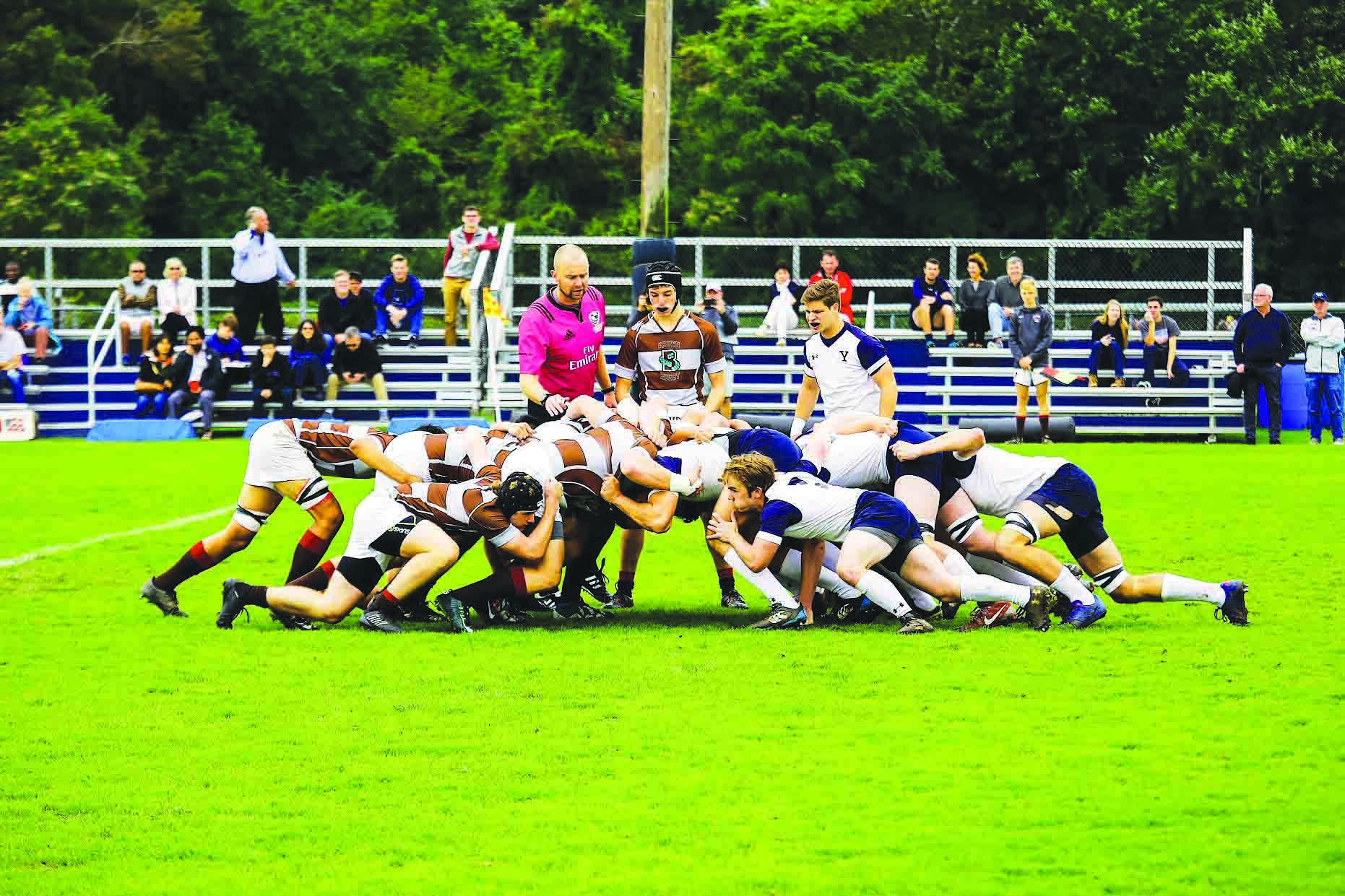As EEE threat persists, no changes to sports start times
EEE precaution cancelled last Friday night’s rugby game

Lucas Holter
As cases of Eastern Equine Encephalitis (EEE) plague Connecticut at an unprecedented frequency this year, rugby coaches from Yale and American International College mutually agreed to cancel a club competition last week.
EEE — a rare but potentially deadly disease spread by mosquitoes — caused a third human fatality in Connecticut this year, the Connecticut State Department of Health revealed in a press release on Tuesday. At Yale, Director of Club Sports and Undergraduate Intramurals Tom Migdalski said the athletics department has communicated with leadership at Yale Health about EEE. The cancelled match between Yale and American International College was slated to take place last Friday night at 7 p.m. at the Yale Rugby Field. Still, the athletics department does not anticipate any further changes to game times or athletic activities.
“The coaches from the two rugby teams decided to cancel the game,” Migdalski said. “The message from the Yale Health Center has been consistent; there has been no indication of a need to change practice or competition times. They told us to take precautions when outdoors by using insect repellent and covering exposed skin with sleeves and pants. They feel it is still safe for our student-athletes and staff to participate in outdoor activities during the normal scheduled times.”
Although Tuesday’s press release from the health department noted the threat of contracting the mosquito-transmitted disease may be waning as the weather cools, many around the state are still taking precautions to prevent it, particularly by altering the start times of outdoor athletic activities to avoid play at dusk and dawn when mosquitoes are most common.
A separate press release issued late last week by the State of Connecticut Mosquito Management Program detailed 21 towns in which EEE has been identified, most of which are concentrated in the southeastern corner of the state. New Haven is not included on the list, and the nearest town in which EEE-infected, human-biting mosquitoes have been found is Madison, which is about twenty miles east of the Elm City.
Despite messages on EEE from Yale Health that did not demand changes in any practice or competition start times, rugby coaches from both schools decided to cancel the match, Migdalski said, adding that club sport coaches “have the purview and option to make decisions that they feel suitable for any given situation.” The Elis’ men’s rugby head coach Greg McWilliams, who is currently coaching the U.S. national side at the Rugby World Cup in Japan, did not respond to a request for comment.
“We heard that the game was canceled on the Thursday night,” rugby captain Daniel Marsh ’21 said. “The team was of course disappointed, but we have Harvard next weekend, so we quickly shifted our focus to that … Our other practices and games have not been affected since we are done before dark usually.”
Cancellation of the Bulldogs’ rugby game occurred as high schools and colleges around the state were taking similar precautions. Last Sunday, the University of Connecticut announced a change in start time for its football game against the University of South Florida this Saturday. Originally scheduled to begin at 7 p.m. at the Huskies’ Rentschler Field in East Hartford, the game will now kickoff at noon. As is the case in New Haven, EEE has not yet been found in mosquitoes in East Hartford.
Last week, the Hartford Courant detailed how concern over EEE was motivating some school districts, including Manchester, Glastonbury, Windsor Locks, Windsor, Somers, Tolland and South Windsor, to shift the start time of athletic competitions to earlier in the afternoon. The East Hartford district implemented a 5:30 p.m. curfew for school-sponsored outdoor activities.
In Tuesday’s release, State Epidemiologist Dr. Matthew Cartter noted that EEE activity in Connecticut has been unprecedented this year. Prior to 2019, the state had only one human case of EEE in 2013. This year’s tally has reached four total cases and three deaths, though the Centers for Disease Control and Prevention (CDC) estimates the mortality rate of the disease is usually around a third. As of Tuesday, there have also been 12 cases of EEE in Massachusetts this year and three in Rhode Island, resulting in a total of four deaths.
“In the southeastern part of the state from the lower Connecticut River valley to the Rhode Island border region, the risk of becoming ill as a result of being bitten by a mosquito infected with EEE virus is low but not zero,” Cartter said in the release. “The forecast is for cooler weather to arrive by the weekend, but the risk of EEE will not be gone until the first hard frost.”
Director of Yale Health Dr. Paul Genecin authored an email to the Yale community on Monday, detailing precautions to prevent mosquito bites as issued by Gov. Ned Lamont last week. Genecin told the News that while he has no direct role with Yale Athletics, Yale Health is “encouraging people to use insect repellent and take environmental actions to empty standing water.”
Mirroring the CDC’s recommendations, Genecin’s memo advised members of the Yale community to use bug spray, wear long sleeves and pants when outdoors and have screens on windows and doors. Meanwhile, Lamont, Cartter and the Connecticut Department of Health have advised residents in the state to limit outdoor activity at dawn and dusk.
According to the CT Mosquito Management Program, there are an average of six EEE cases in the United States each year.
William McCormack | william.mccormack@yale.edu







